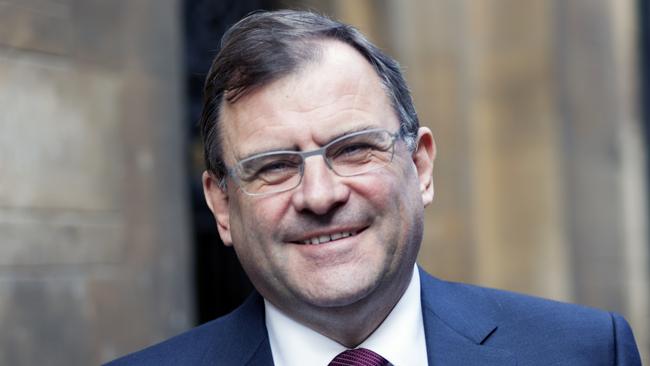Plumber’s son says unis must reach out to the working class
Duncan Maskell’s family was shocked ‘in a good way’ when he won a place at Cambridge.

He may be the No 2 at the University of Cambridge but Duncan Maskell, who will take over as head of the University of Melbourne next year, comes from working-class origins.
His family was “very, very basic working class”, Professor Maskell said in an interview.
He grew up in North London and was the first in his family to go to university.
Professor Maskell’s father, who was bright and could have gone further in his education, left school at 14.
“He could have gone to grammar school but (his parents) couldn’t afford the school uniforms,” Professor Maskell said.
“He did an apprenticeship and became a jobbing plumber, and my mum wound up working in a factory.”
Professor Maskell went to a state school and it was a shock to the family “in a good way” when young Duncan was not only offered a place at university but went to Cambridge, where he did his undergraduate degree, and continued to his masters and PhD.
He said it was important for universities to reach out to promising students who were not likely to apply to university because their background hadn’t prepared them for it.
“I think we have a lot to do to ensure that everybody who’s got the chance to go to a top university applies in the first place, and then we help schools and teachers and students understand what it takes to get into and succeed at a top university,” he said.
Professor Maskell, a biologist who specialises in infectious diseases, said he believed Melbourne University had a lot of opportunities to further develop its successful research profile.
He said the university should focus on more international collaboration, more engagement with business and industry, improving its interdisciplinary research internally and working better with local research institutes. “I think all of those things could help it to grow its esteem even further, in terms of research certainly,” he said.
Professor Maskell also said that, in his mind, research and teaching were closely linked.
“We want to be teaching our students in the presence of the most recent knowledge, so that intertwining will also benefit the students,” he said.




To join the conversation, please log in. Don't have an account? Register
Join the conversation, you are commenting as Logout